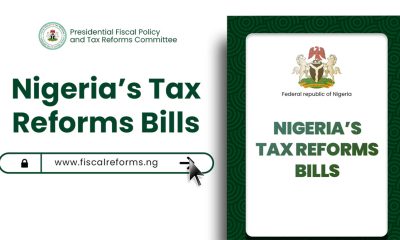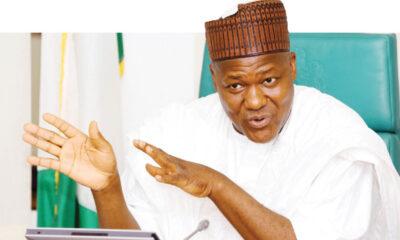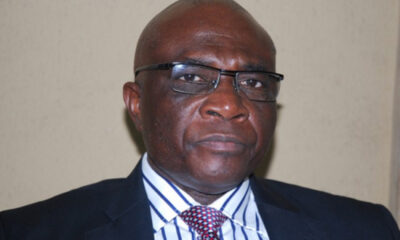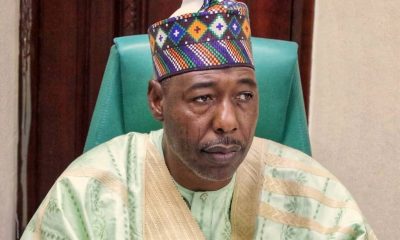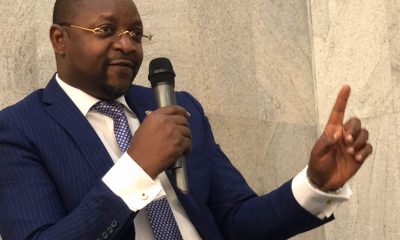Opinion
Farooq Kperogi : Why the North suddenly cares about northern lives

Farooq Kperogi : Why the North suddenly cares about northern lives
It should be made clear from the outset that I am overwrought with immense grief by the heartbreaking but unintentional killing of 126 innocent men, women, and children celebrating Maulud at Tudun Biri village in Kaduna State on December 3.
Nothing can compensate for this. No excuse can rationalize it. And the outrage that this issue has generated against the Tinubu government is richly justified.
But it’s oddly hypocritical that there are suddenly vocal elements from the North—particularly the Muslim North, which went into a dreamless slumber during Buhari’s reign of bloodshed—carrying on as if this cruel, indefensible, even if involuntary, killing of innocent Muslims in the name of fighting outlaws is unprecedented.
Well, on January 17, 2017, the Nigerian Air Force also “mistakenly” dropped two—yes, two— bombs on an IDP camp in Rann, Borno State, which killed 236 innocent men, women, and children, according to Human Right Watch Nigeria’s revised estimate as reported by the Voice of America on January 24, 2017. The Nigerian military said it mistook the poor refugees for Boko Haram terrorists.
There was pin-drop silence from the Muslim North—and from the same people who’re—or pretend to be— outraged by and bent out of shape about what happened at Tudun Biri. Those of us who ranted and raved in righteous rage about it because Muhammadu Buhari showed scant concern for the lives that were snuffed out by the military he was commander-in-chief of were hushed up, harassed, attacked, and defamed.
In a January 21, 2017, Daily Trust column titled, “Buhari’s Gambian Gambit As Borno Burns,” I wrote the following words that have now somehow materialized, except for the little fact that Tinubu isn’t a southern Christian:
“Imagine for a moment that Nigeria’s current president were a man called Goodluck Jonathan (or, for that matter, any southern Christian), and the military ‘mistakenly’ dropped a bomb on hapless internally displaced Boko Haram victims, killing scores of them and critically injuring many more. Imagine again that such a president didn’t deem it worth his while to visit the state where this grievous tragedy happened, but instead chose to go to another country to resolve the country’s political differences. What would we northern Muslims be saying by now?”
READ ALSO:
- BREAKING: CBN raises alarm over fake naira notes in circulation
- Late Alaafin’s son, Abdulfatai dies at 46
- RCCG sacked pastor defrauds woman, her friends of N51m
- Police arrest officers caught begging money from foreign female biker
Several of my fellow northern Muslims attacked me for this. My traducers were particularly incensed that I inserted scare quotes around the word “mistakenly.” They thought it implied that I meant Buhari had deliberately ordered the murder of civilians in Rann. But I merely inserted quotation marks because I was acknowledging that the military owned up to the killing and called it a mistake.
When Mubi, Adamawa State’s second largest town, was overrun by Boko Haram terrorists in 2014 and then President Goodluck Jonathan decided to visit Burkina Faso to resolve the country’s political crisis, he was roundly condemned in the country, particularly in the North. I wrote a stinging column on this myself.
“Amid the heartrending humanitarian disaster that Boko Haram has wreaked on Mubi, the president chose to travel to Burkina Faso to ‘resolve’ the country’s political crisis. Which sane person goes to put out another person’s fire while his house is up in flames?” I wrote in a November 8, 2014, column titled, “State of Emergency Amid Worsening Boko Haram Insurgency.”
But when I wrote to condemn Buhari for ignoring Rann and, like Jonathan, choosing instead to visit the Gambia to resolve the country’s political crisis, I got rhetorically violent pushbacks from the very people who should be hurt by Buhari’s blithe indifference to the tragedy in Rann.
All that Buhari did after more than 200 civilians were killed by two Nigerian Air Force bombs was to delegate an aide to issue a familiarly stereotyped expression of “regret” through his Twitter handle. Neither he nor his deputy physically traveled to Borno State to condole with and comfort the people.
President Bola Ahmed Tinubu’s response to the Tudun Biri tragedy is comparatively better. Within a few days of the disaster, he delegated Vice President Kashim Shettima to visit the community and express his condolences.
“President Bola Ahmed Tinubu sent us to commensurate with the people of Kaduna over this tragic incident. The calibre of people that are here with me is a testimony [to] how deeply touched the president was by the incident,” Shettima said during the visit, as if to draw a contrast between this government’s response to a horrendous tragedy and the previous government’s response to a similar but more horrific involuntary mass massacre.
There’s always more that can be done, but that there was a presidential visit to the site of the tragedy—unlike in the past—is worthy of acknowledgement. I have advocated for this sort of empathetic leadership for years. I would be a hypocrite not to acknowledge it when I see it.
In condemning Buhari’s symbolic unconcern over the unintentional killing of IDPs in Rann, I wrote, “Now, a presidential national broadcast to mourn this tragedy and a personal visit by the president to give emotional strength to the bereaved won’t bring back the lost lives, but it would show respect for the dead and show that the president cares and takes responsibility for the fatal error of the people he is commander-in-chief of.”
READ ALSO:
- Court gives stringent bail conditions for UTME impersonators
- Canada announces new visa requirements; raises proof of funds from $10,000 to $20,000
- Excitement as Dangote refinery welcomes first crude oil shipment
There has been no presidential broadcast from Tinubu, but there was a presidential visit to bereaved families, yet the Tudun Biri tragedy has attracted more attention and anger in the North than the Rann one did. It’s obvious what’s responsible for the double standards: the ethno-regional identity of the president.
Had Buhari—or, for that matter, any northern Muslim—been president when the Tudun Biri Maulud merrymakers were involuntarily killed by the military, there would have been no expression of indignation from most of the people who are hyperventilating now.
Although Sheikh Ahmad Gumi was consistently critical of the Muhammadu Buhari government for eight years, which he undermined with his curious defense of bandits, he is increasingly coming across as merely using the Tudun Biri as an outlet to ventilate pent-up ethno-regional anxieties about a southern presidency.
That’s also true of former National Health Insurance Scheme DG/CEO Professor Usman Yusuf who became critical of the Buhari regime only after he was fired from his position. He is now furtively religionizing and regionalizing the Tudun Biri mass deaths.
”This is a religious procession,” Yusuf told Channels TV. “What would have happened if a religious Christian Procession in Plateau or Kaduna was bombed? Big Churches from the South specifically would have raised their voices all over Nigeria.”
This seems to me like an underhanded religious incitement because what the villagers were doing at the time of their unfortunate death was incidental to the fact of their death. They could very well have been at the marketplace selling goods.
Yusuf knows that the most effective way to rouse the raw passions of northerners, whether they are Muslims or Christians, is to make appeals to religion. Except that Yusuf’s attempt at religious manipulation is undermined by the reality that both the president and the vice president—and, to complicate things further, the two ministers of defense— are Muslims.
Why would they be interested in killing fellow Muslims? This same logic undermines Gumi’s claim that the Tudun Biri killing was “deliberate.”
Finally, Bashir Ahmad, former special assistant on digital communications to Muhammadu Buhari who saw no evil during Buhari’s reign suddenly went into an amnesic, conspiratorial frenzy over the Tudun Biri tragedy on Twitter.
“Haba! You can’t kill 126 innocent souls — a hundred and twenty-six civilians, and just call it a mistake. I can’t even remember a time when the troops killed such a number of terrorists anywhere in this country at once. @HQNigerianArmy, Nigerians are waiting to hear from you how this ‘mistake’ will be corrected and what measures you’d put in place to prevent a recurrence,” he wrote.
Thankfully, people shut him up by reminding him of Rann where 236 Muslims in IDP camps were mistakenly bombed to a cinder when Buhari was president and Buhari didn’t deem it worth his while to visit the survivors.
When your sense of rage and outrage is activated or suppressed by the primordial identity of the person in power, you have no conscience.
Farooq Kperogi : Why the North suddenly cares about northern lives
Farooq Kperogi is a renowned Nigerian newspaper columnist and United States-based Professor of Journalism.
Opinion
Tinubu’s Buharization of NNPC By Farooq Kperogi
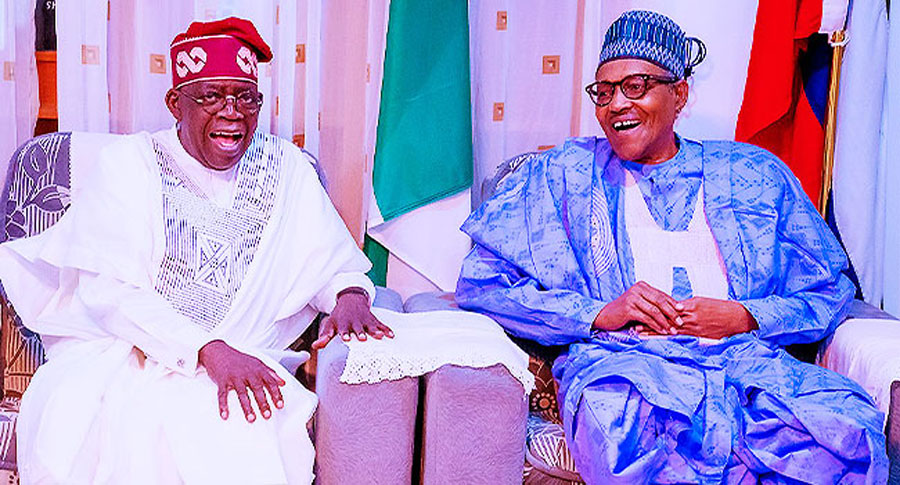
Tinubu’s Buharization of NNPC by Farooq Kperogi
After the sustained, unwarranted personal attacks I endured for eight years from northerners for unswervingly calling out what I called the “embarrassingly undisguised Arewacentricity of Buhari’s appointments” in a February 2, 2019, column titled “Even Ahmadu Bello Would Be Ashamed of Buhari’s Arewacentricity,” I promised that I would look the other way if a southern president returned the favor after Buhari’s tenure.
But promises made in the heat of disillusionment often crumble under the weight of principle.
Ironically, this column was inspired by a well-regarded Yoruba supporter of President Bola Ahmed Tinubu who is worried, in fact embarrassed, by the optics of what he says is Tinubu’s relentless Yorubacentric take-over of the Nigerian National Petroleum Company (NNPC).
His concern wasn’t just partisan discomfort; it was a profound unease about how this nepotistic approach undermines national cohesion.
I frankly hadn’t been paying attention to the internal dynamics at the NNPC, but the acquaintance pointed out that Yoruba people now occupy major positions at the NNPC and that a certain (person) is “being proposed as GMD after Mele Kyari’s term expires” early next year.
I haven’t independently confirmed the accuracy of this claim but given the closeness of the source of information to people in the circles of power, it’s probably best to not dismiss this with the wave of the hand.
His concern is that Tinubu, from the Southwest, is already the minister of petroleum. Senator Heineken Lokpobiri, the Minister of State for Petroleum and Chairman of the NNPC, is from the South-South. Chief Pius Akinyelure from the Southwest is NNPC’s Non-Executive Board Chairman.
READ ALSO:
- Lagos Imam to Tinubu: You haven’t disappointed us
- Ronaldo, Vinicius, Yamal win big at 2024 Globe Soccer Awards [Full list of winners]
- Vinicius should have won Ballon d’Or, not Rodri – Ronaldo
The head of the NNPC Upstream Investment Management Services (NUIMS), Mr. Bala Wunti, my acquaintance pointed out, has been replaced by one Seyi Omotowa. Gbenga Komolafe is the chief executive officer of the Nigerian Upstream Petroleum Regulatory Commission (NUPRC), making him the highest-ranking upstream regulator.
“If a Yoruba man were to be the GMD, another Yoruba man is the Chairman, and yet another Yoruba man is the regulator, that’s extreme lopsidedness,” and other parts of Nigeria would be justified to feel uncomfortable, my acquaintance said.
As with issues of this nature, the reality may be more complex that the surface-level impressions that I have been presented with. Of the 12-member non-executive Board of Directors, I counted at least four names that I recognize as northern, and that includes Kyari, the outgoing GMD.
The 7-member Senior Management Team on NNPC’s website has three northerners (if Kyari is included). That seems fair. Plus, Buhari actually appointed many of the Yoruba people in high places at the NNPC. By these metrics, one might argue that there’s a semblance of balance.
However, Tinubu’s broader public image tells a different story. His administration is rapidly cementing a reputation for Yorubacentric provincialism. Like the late Umaru Musa Yar’Adua, who governed Nigeria as if he were still a Katsina governor, Tinubu appears to be governing Nigeria as though he were still the governor of Lagos.
Just like Yar’adua was elected a Nigerian president but operated like a Katsina governor in Abuja, Tinubu is also, so far, a Nigerian president only in name. His mindset is still that of the governor of Lagos.
With a few notable (and in some cases unavoidable) exceptions, Tinubu’s government is largely the re-enactment of his time as the governor of Lagos. It is, for all practical purposes, an unabashed Lagos-centric Yorubacracy.
To be fair, though, with the possible exception of Olusegun Obasanjo’s administration, all civilian regimes since 1999 have been insular ethnocracies.
My source reminded me of a viral social media post I wrote on January 14, 2019, titled “New IGP: Why Progressive Northerners Should be Embarrassed” where I gave four reasons for being insistently censorious of Buhari’s Arewacentric appointments in response to southerners who asked why I was bothered since I was a northern Muslim who was “favored” by such appointments—“favored,” that is, on the emotional and symbolic plane.
READ ALSO:
- Nigeria Customs Service begins 2025 recruitment [How to apply]
- Dangote, Tinubu, Lookman, Badenoch named among 100 most influential Africans in 2024
- Heavy security in Ilesa as ex-Osun deputy gov emerges new Owa-Obokun
I pointed out that I criticized similar such parochial appointments by previous presidents from the South and that it would be hypocritical to look the other way because I was now “favored” by such appointments.
I said people from my region and religion won’t always be in power, and I wanted to be able to stand on a firm moral pedestal when I criticize future presidents who replicate Buhari’s (and previous presidents’) provincialism.
Most importantly, I said, I was personally embarrassed by Buhari’s insularity and that every progressive northerner should be. I described it as the sort of embarrassment you feel when your best friend who thinks highly of your mother visits you in your home and your mother, during a family dinner, gives you a considerably bigger food portion size and choicer pieces of meat than your friend.
“You feel like screaming: ‘Mom, I know you love me, but you’re embarrassing me by showing overt preferential treatment to me in the presence of my friend’,” I wrote.
The Yoruba acquaintance of mine who alerted me to the creeping Yoruba-centric take-over of the NNPC said he was doing so out of a feeling of the same sense of embarrassment that inspired my rage against Buhari’s appointments that favored the North unfairly, especially in the areas of security.
Tinubu is doing in the economy sector what Buhari did in the security sector. The minister of finance, the governor of the central bank, and every other consequential agency in finance is headed by a Yoruba man. I am not sure Nigeria has ever seen this level of extreme, state-sanctioned ethnocentric domination of a critical segment of national life.
Appointing another Yoruba individual as the head of the NNPC would complete what many already perceive as the ethnic capture of Nigeria’s economic nerve center. It would not only cement Tinubu’s image as an insensitive ethnocrat but also exacerbate public discontent and foster deeper divisions in an already polarized nation.
If Tinubu is unaware of this burgeoning perception, he needs to awaken to its reality. Leadership is not just about policies and actions; it’s also about managing optics and inspiring confidence in a nation’s collective identity.
In a September 5, 2015, column titled “Buhari is Losing the Symbolic War,” where I railed against the exclusion of Igbo people in Buhari’s first appointments, I wrote:
“Symbolism isn’t the same thing as substance. Appointing people to governmental positions does nothing to improve anybody’s lot—except, perhaps, the people so appointed and their immediate families.
“Jonathan’s disastrous 5-year presidency couldn’t even bring basic infrastructure like boreholes to his hometown of Otueke, yet his people derive vicarious satisfaction from the fact of his being Nigeria’s former president.
“Human beings are animated by a multiplicity of impulses, including rational and emotional impulses, both of which are legitimate. When we turn on our rational impulses, we may ask: What would appointing an Igbo man as SGF, for instance, do to Igbo people? The answer is ‘nothing.’
“But we are more than rational beings: we are also emotional beings. That’s why people are invested in symbolism. Appointing someone from the southeast or the deep south is merely a symbolic gesture, but it inspires a sense of inclusion in the minds of many people from that region; it serves as a symbolic conduit through which people vicariously connect with the government.”
This cycle of ethnic favoritism must end if Nigeria is to realize its full potential as a nation. To grow and thrive, we need leaders who can transcend the narrow confines of ethnocracy.
We need leadership that embraces diversity and inclusion, not as buzzwords but as guiding principles for governance. Only then can we begin to heal the fractures that divide us and build a nation that serves all its citizens, regardless of ethnicity or region.
Farooq Kperogi is a renowned Nigerian columnist and United States-based Professor of Media Studies.
Tinubu’s Buharization of NNPC by Farooq Kperogi
Opinion
Ademola Lookman showed Davido and Kemi Badenoch that wisdom is not by age – Omokri
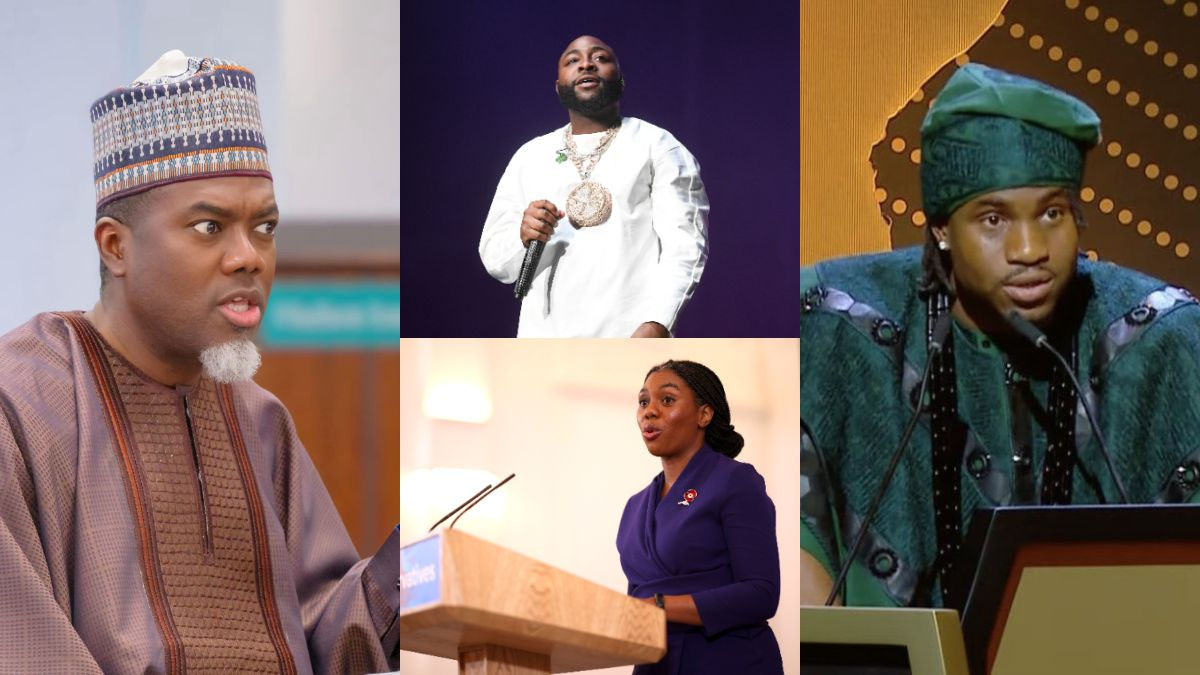
Ademola Lookman showed Davido and Kemi Badenoch that wisdom is not by age – Omokri
Recently, the singer David Adeleke was given a global stage to do whatever he wanted and deliver any message.
Sadly, Mr. Adeleke used the opportunity to speak in an American accent. Not only that, he used that American accent to talk down on Nigeria and tell the world not to invest in Nigeria because, as he put it, Nigeria’s “economy is in shambles”.
Coincidentally, a month after his faux pas, Kemi Badenoch, probably inspired by Davido, used her British accent to talk down Nigeria, calling us “a very poor country” where the police rob citizens.
But the interesting thing about her own case is that the next day, the BBC featured a panel of Conservative Party big shots, and one of them, Albie Amankona, a party chieftain from Chiswick, who is also a celebrity broadcaster, said, and this is a direct quote:
“If you are a Brexiteer, and you are saying we need to be expanding our global trade beyond the European Union, we want to be looking at emerging markets for growth, don’t slag off one of the fastest growing economies in Africa.”
Is it not strange that it took the BBC and a British politician to promote Nigeria as one of the fastest-growing economies in Africa?
And just when we thought it was all bad news, God gave us a breath of fresh air in the youthful Ademola Lookman, who used the global podium granted to him by his winning the 2024 African Footballer of the Year award to promote and project Nigeria and the Lukumi Yoruba language to the world.
READ ALSO:
- MURIC tackles Kemi Badenoch: Can you bring UK police when coming to Nigeria?
- Reps probe $754.2m, N141.6bn tractors, harvesters contract fraud
- Gov Adeleke intervenes in man sentenced to death for stealing fowl (Video)
Wisdom is not by age. If not, Ademola Lookman, who is just twenty-seven, will not have displayed greater wisdom than David Adeleke, who is thirty-two, and Kemi Badenoch, at forty-four.
Mr. Lookman proved that the age of Methuselah has nothing to do with the wisdom of Solomon.
And it is not as though other ethnicities with global icons do not also project Nigeria. They do.
Dr. Mrs. Ngozi Okonjo-Iweala spoke Igbo on the podium of the WTO in Geneva. In terms of prestige, she is FAR above Lookman.
My campaign is not for the Lukumi Yoruba alone. It is for all sub-Saharan Black Africans to learn to speak their language and not use ability to speak English or another colonial language as a measure of intelligence.
Besides Lukumi Yoruba and Hausa, every other Nigerian language, including Fulfulde, is gradually dying out.
General Buhari is half Fulani and half Kanuri. Yet, he cannot speak either Fuifulde or Kanuri. But he speaks Hausa and English.
Fact-check me: In 2012, UNESCO declared Igbo an endangered language.
However, the Lukumi Yoruba are to be commended for their affirmative actions to advance their language and culture.
Let me give you an example. All six Governors of the Southwest bear full Lukumi names: Jide Sanwa-Olu, Seyi Makinde, Dapo Abiodun, Ademola Adeleke, Abiodun Oyebanji, and Orighomisan Aiyedatiwa.
No other zone in Nigeria has all its governors bearing ethnic Nigerian names as first and second names. They either bear Arabic or European names as first names or even first and second names.
If we truly want to be the Giant of Africa, we must take affirmative steps to preserve our language and culture so we can have children like Ademola Lookman.
Teach your language to your children before you teach them English. They will learn English at school. Being multilingual is scientifically proven to boost intelligence.
Fact-check me: In the U.S., Latino kids do not speak English until they start school. They learn Spanish as a first language.
Even if you relocate to the UK, the best you can be is British. You can never be English. And if your choice of Japa is the U.S., the highest you can be is an American citizen. You will never become a White Anglo-Saxon Protestant WASP.
Your power lies in balancing ancient and modern, Western and African, English (or other colonial languages) and your native tongue.
That is the way to reverse language erosion, like the Lukumi Yoruba.
Ademola Lookman showed Davido and Kemi Badenoch that wisdom is not by age – Omokri
Opinion
Kemi Badenoch’s Hate for Nigeria – Femi Fani-Kayode

Kemi Badenoch’s Hate for Nigeria – Femi Fani-Kayode
“I find it interesting that everyone defines me as a Nigerian. I identify less with the country than with my specific ethnic group. I have nothing in common with the people from the north of the country, the Boko Haram, where Islamism is. Being Yoruba is my true identity and I refuse to be lumped with the northern people of Nigeria who were our ethnic enemies, all in the name of being called a Nigerian”- @KemiBadenoch.
Dangerous rhetoric
Kemi Badenoch, MP, the leader of the British Conservative Party and Opposition in the @UKParliament, has refused to stop at just denigrating our country but has gone a step further by seeking to divide us on ethnic lines.
She claims that she never regarded herself as being a Nigerian but rather a Yoruba and that she never identified with the people from the Northern part of our country who she collectively describes as being “Boko Haram Islamists” and “terrorists”.
This is dangerous rhetoric coming from an impudent and ignorant foreign leader who knows nothing about our country, who does not know her place and who insists on stirring up a storm that she cannot contain and that may eventually consume her.
It is rather like saying that she identifies more with the English than she does with the Scots and the Welsh whom she regards as nothing more than homicidal and murderous barbarians that once waged war against her ethnic English compatriots!
All this coming from a young lady of colour that is a political leader in a multi-ethnic, multi-religious and multi-cultural country that lays claim to being the epitome of decency and civilisation! What a strange and inexplicable contradiction this is.
READ ALSO:
- CCT chair removal: Civil groups sue Tinubu, Akpabio, others
- New President-General of Ohanaeze Chukwu to reign for 27 days
- Economy: I derive no pleasure in causing Nigerians pain, says Tinubu
Her intentions are malevolent and insidious and her objective, outside of ridiculing and mocking us, is to divide us and bring us to our knees.
I am constrained to ask, what on earth happened to this creature in her youth and why does she hate Nigeria with such passion?
Did something happen to her when she lived here which she has kept secret?
Kemi Badenoch’s Hate for Nigeria – Femi Fani-Kayode
-

 metro3 days ago
metro3 days agoFarotimi to pursue disbarment over arrest, defamation allegations
-

 Business2 days ago
Business2 days agoReal reason Dangote, NNPC drop petrol price — IPMAN
-

 Sports1 day ago
Sports1 day agoAnthony Joshua prostrates before Governor Abiodun during Ogun visit
-

 Health2 days ago
Health2 days agoABU Teaching Hospital will begin kidney transplant in 2025 – CMD
-

 metro1 day ago
metro1 day agoWanted terrorist commander, Bello Turji, a dead man walking – DHQ
-

 metro3 days ago
metro3 days agoNigerian govt urged to intervene in Mozambique post-election violence
-
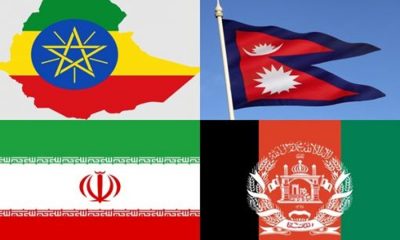
 metro24 hours ago
metro24 hours agoFour countries that won’t celebrate New Year
-
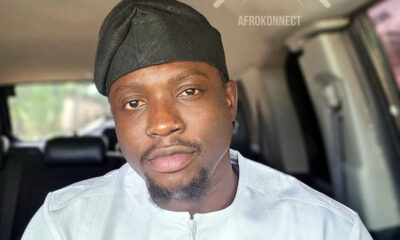
 metro1 day ago
metro1 day agoN180m not missing from my account, it was all a plan – Verydarkman

